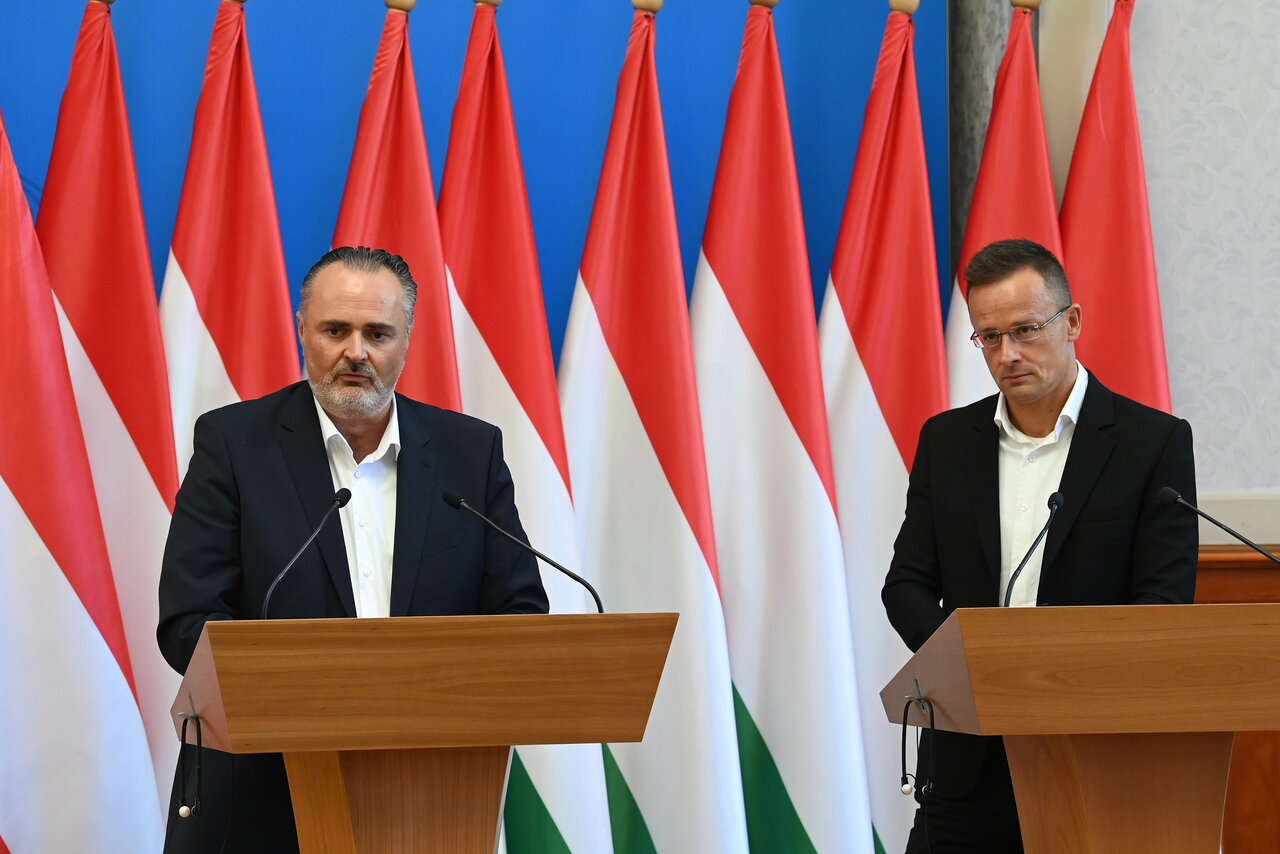Hungary wants close cooperation with Austria, including Burgenland, because several challenges can only be resolved through joint efforts, the foreign ministry said on Friday citing minister Péter Szijjártó.
Szijjártó told a joint press conference with Governor of Burgenland Hans Peter Doskozil that the value of good and well-balanced cooperation is even higher in such out-of-the-ordinary periods as the current one. There are few challenges that state borders are able to stop and it is therefore extremely important to develop cross-border cooperation based on mutual respect, such as the relations between Hungary and Burgenland, he said. “When we talk about the neighbourly relations between Hungary and Austria, we might as well talk about the neighbourly relations between Hungary and Burgenland,” he added.
Hungary is Burgenland’s second largest export partner and fifth largest import partner, with 181 Hungarian companies operating on both sides of the border, he said. Some 17,000 Hungarians work in Burgenland which makes every sixth employee there a Hungarian, he added.
“It is therefore all the more important that the border should be easily crossable by those that do it in line with the law and with full respect of legal regulations, and at the same time, we must stop those that want to cross into the other country in violation of regulations,” he said.

The development of the Lake Fertő area is a joint goal and responsibility, and environmental challenges can only be handled in cooperation, he added. The increasing migratory pressure is a joint challenge, he said, adding that authorities had already stopped 130,000 illegal migrants on Hungary’s southern border this year. “Despite the increasing pressure, Hungary is making every effort to protect itself and consequently protect Europe and Austria from illegal migrants,” he said.
“We will not let illegal migrants to enter despite getting only 2 percent financial support from the European Union for this European task so far,”
he said. The sides signed a letter of intent on further developing cross-border cooperation between Hungary and Burgenland.
Szijjártó said that Hungary’s natural gas storage facilities were currently filled to a level exceeding 27 percent of annual consumption, which would be sufficient in normal times. However, since “we don’t live in normal times” the government decided to purchase an additional 700 million cubic metres of gas on top of the volume fixed in long-term contracts and “this is impossible to do without using Russian sources”.
Szijjártó said that he had briefed the UN General Assembly president ahead of his Moscow visit on Thursday and he would also present the experiences gained to his European Union counterparts next week.
Featured image: illustration
Before the Mongol invasion, Cuman tribe was allowed to settle in Hungary. They did not assimilate. When the Mongols attacked Hungary, the Cumans actually fought on the side of the Mongols killing Hungarians. The lesson was well learned. When analyzing the refugee invasion of 2015, the same scenario is occurring. The Middle-Eastern people did not assimilate, unemployment is high, crime is on the increase. EU countries are left with trying to prevent terrorist attacks, rape of women, beheadings and no go zones. The cost of accepting the refugees was incredibly high. Illegal immigration also increased. The irregular migrant are mostly young men who wish to live in countries that have the most generous welfare. A groups of African migrants actually attacked a shelter set up for Ukrainian women and children in France, not understanding, that women and children need more care. The EU laws do not help and no EU country deported the illegal migrants or criminal refugees.
Hungary and Austria are in agreement that they do not want illegal aliens in their countries. Both countries are accepting and helping Ukrainian refugees because there is a real war in the Ukraine. Each EU countries should have the liberty to decide who should live in their territory.